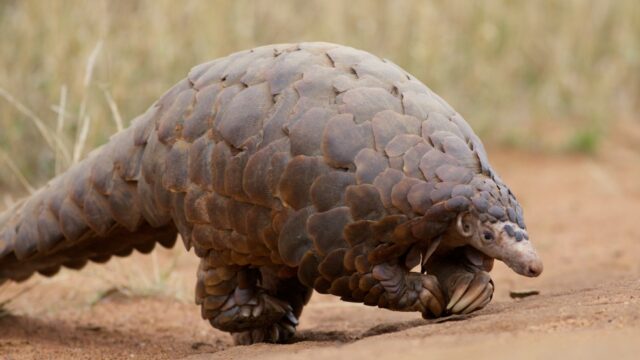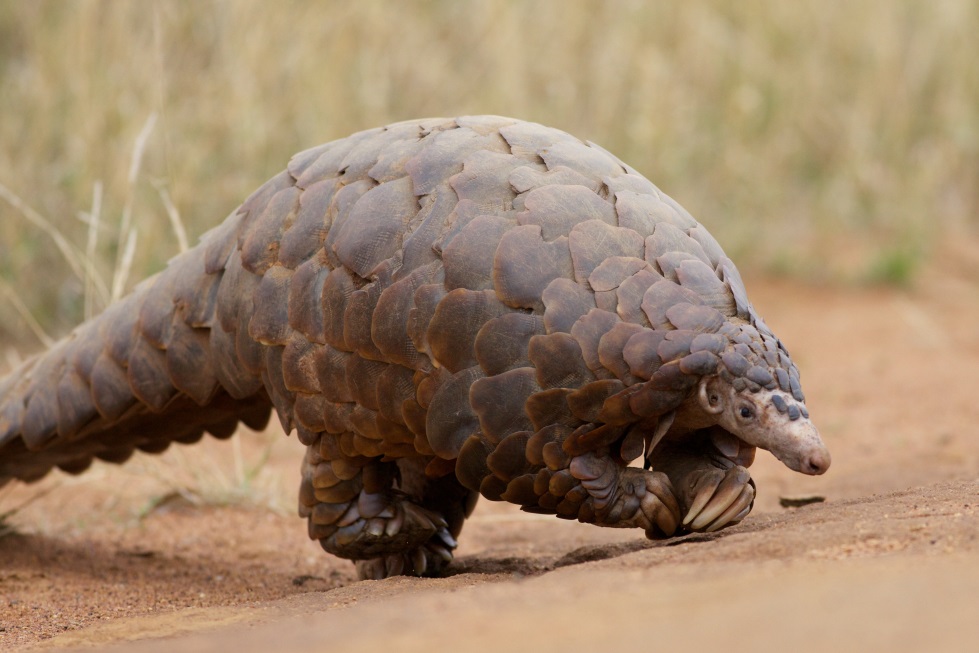
How the Trafficking of Pangolins Reflects Challenges in Diplomacy
The alien-looking pangolin has the unfortunate title of the world’s most trafficked mammal. There is a critical need for diplomatic conservation efforts to aid in this trafficked mammal’s plight. The trafficking of pangolins is part of the larger worldwide issue of wildlife trafficking.
Wildlife trafficking, or the illegal poaching, transit, trade, and sale of wildlife, generates more than $10 billion a year for transnational organized criminal networks. This illegal trade has devastating impacts: it can threaten security, hinder economic development, and contribute to the spread of disease.
Through one of NMAD’s diplomacy simulations, students can take the roles of key diplomatic stakeholders responsible for mitigating a hypothetical crisis of trafficked pangolins. While this simulation is a hypothetical scenario, the pangolin trafficking crisis around the world is very real.

What is a Pangolin?
Pangolins look like reptilian pinecones, and you may have never heard of them. With eight species across two continents, pangolins of all types are smuggled into Asia for traditional medicines. When pangolins feel fear, they roll-up into a ball, so they are easy to poach and catch.
Poaching threatens all species of the pangolin. Three species are listed as critically endangered on the International Union for Conservation of Nature Red List of Threatened Species. Their armored scales are ground to a fine powder and encapsulated in pills or mixed into water. The purported benefits of consumption include cures for various ailments, including cancer. Their meat is considered a medicinal delicacy. Despite claims of these benefits, however, the effectiveness of pangolin “cures” remains scientifically unfounded.
Four species of pangolins are native to regions of West and Central Africa. In these areas, pangolins are a common source of food. Four additional species of pangolins are native to South and Southeast Asia. However, Chinese demand for pangolins has grown in recent decades. Increased demand for pangolins in China has driven their position to a valuable criminal export. As pointed out in sources as early as a 2002 United Nations Wildlife Management Working Paper, the export of bushmeat animals is extremely unsustainable and detrimental to the communities that have historically relied on them.
Pangolin scales sell for over $3,500 per kilogram on the black market. Because each pangolin has upwards of 1,000 scales, the lucrative nature of the business is obvious. For example, in 2019, Singapore seized one shipment containing over 12 tons of pangolin scales worth about $38.1 million; this represents approximately 20,000 individual pangolins. According to NGO reports, 253 tons of pangolin scales were confiscated worldwide from 2015-2019. Most of these were destined for China. Scales are often trafficked to China from Nigeria, Cameroon, and the Democratic Republic of Congo. Individuals that smuggle pangolins and other wild animals are not average residents of the locations in which they operate but rather sophisticated and dangerous criminals: wildlife trafficking is perpetrated by transnational organized crime.
The Illicit Trade of the Pangolin
The trade of pangolins points to a larger problem—illicit trafficking of bushmeat and live wild animals.
In a National Museum of American Diplomacy educational simulation, Christine Dawson—Director of the Office of Conservation and Water at the US Department of State—reveals that the illegal trade in wild animals often spreads disease. For example, chimpanzees and other great apes can carry Ebola Virus Disease (EVD), and tropical birds can carry H5N1, also known as avian influenza. These zoonotic diseases can have deadly consequences for humans, with frightening mortality rates of 90% and 60%, respectively. A recent article published in Nature Communications documents the transmission of SARS-CoV-2-like viruses among Asian bats and pangolins. Thus, this study presents limiting trade in pangolins as an environmentally-friendly policy and offers these options as preventative public health interventions.
Fighting Wildlife Trafficking Through Diplomacy
The United States has encouraged conservation efforts for pangolins through diplomacy. Illicit trade in pangolins is a multi-faceted problem, necessitating further examination through multiple avenues. To save the pangolin from extinction, diplomats at the U.S. Department of State work every day to reduce the illegal trade of this small and unusual animal.
About the Author: Isaac Gorres is a Virtual Student Federal Service Intern at the National Museum of American Diplomacy. He is currently studying Biochemistry/Molecular Biology and Art History at Rollins College in Winter Park, Florida.